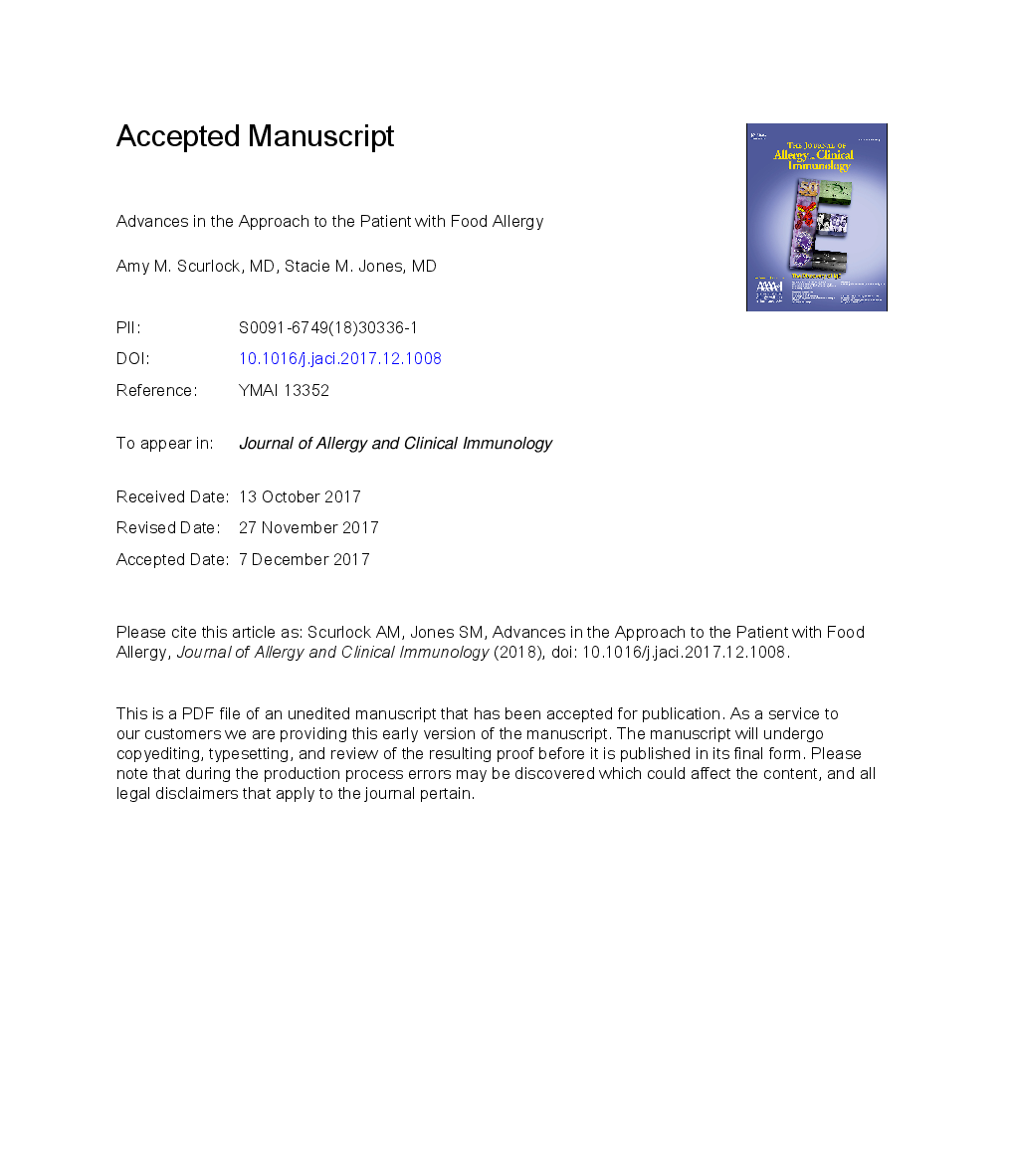ترجمه فارسی عنوان مقاله
پیشرفت در رویکرد به بیمار با آلرژی غذایی
عنوان انگلیسی
Advances in the approach to the patient with food allergy
| کد مقاله | سال انتشار | تعداد صفحات مقاله انگلیسی |
|---|---|---|
| 129017 | 2018 | 37 صفحه PDF |
منبع

Publisher : Elsevier - Science Direct (الزویر - ساینس دایرکت)
Journal : Journal of Allergy and Clinical Immunology, Available online 8 March 2018
ترجمه چکیده
پیشرفت در تشخیص آلرژی غذا، مدیریت، پیشگیری و مداخلات درمانی در طول دو دهه گذشته، بسیار مهم بوده است. دستورالعمل های ملی و بین المللی مبتنی بر شواهد تشخیص آلرژی غذایی و مدیریت کارآمد اند، در حالی که کار پارادایم تغییر در پیشگیری اولیه از حساسیت به بادام زمینی در تغییرات قابل توجهی را در رویکرد به معرفی مواد غذایی در اوایل نوزادان و کودکان نوپا منجر شده است. بررسی نوآورانه اپیدمیولوژی آلرژی غذایی، بیولوژی سیستم، اثر و مدیریت، بینش های مهم را ارائه داده است. گرچه رویکردهای درمانی فعال در زمینه آلرژی غذایی همچنان تجربی است، اما پیشرفت در زمینه درمان های مجاز بسیار قابل توجه است. درک مکانیکی از فرآیندهای ایمنولوژیکی که تحت تأثیر آلرژی غذایی و ایمنوتراپی قرار می گیرند، طراحی آینده ای از رویکردهای درمانی را که هدف از واکنش آلرژیک ناشی از مواد غذایی است، اطلاع می دهند. استراتژی های جهانی برای کاهش بار پزشکی، اقتصادی و روانی قابل توجهی از آلرژی غذایی در افراد مبتلا و خانواده تعامل سهامداران در سراسر بخش های مختلف در تحقیقات، بهداشت و درمان، بهداشت عمومی، دولتی، موسسات آموزشی، و صنعت است. با این حال، ارتباط بین ارائه دهنده خدمات آلرژی به خوبی مطلع و بیمار و خانواده برای بهینه سازی مراقبت از بیمار با آلرژی غذایی پایه اساسی است.

